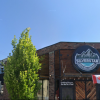At first glance, this house appears to be no different than any other of the elegant homes at Wilden.
But, between the walls at 278 Summer Wood Dr., there's innovative hemp insulation, making this 'modern farmhouse' an environmentally friendly, net-zero ready showpiece.
"Traditional insulation (like fibreglass or cement) has a heavy carbon footprint (to make and transport)," said Karin Eger-Blenk, CEO of the master-planned Wilden community.
"Hemp insulation is carbon negative because it absorbs more CO2 than it emits, lowering the home's carbon footprint."
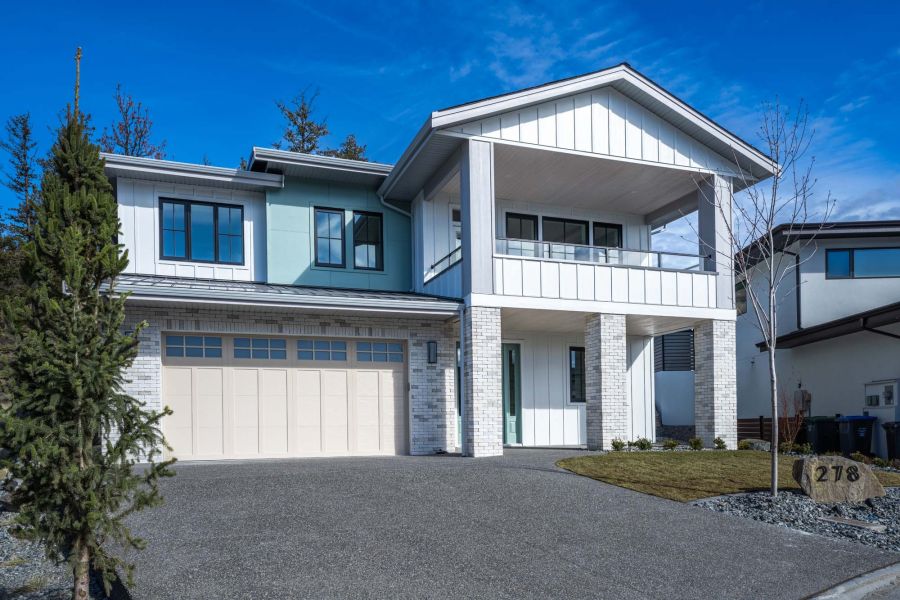
In every neighbourhood Wilden builds, it has a 'test house' that features new innovation.
"For the test house in our Echo Ridge neighbourhood, I added the challenge to reduce the embodied carbon of the home to our construction team," said Eger-Blenk.
"They really came through."
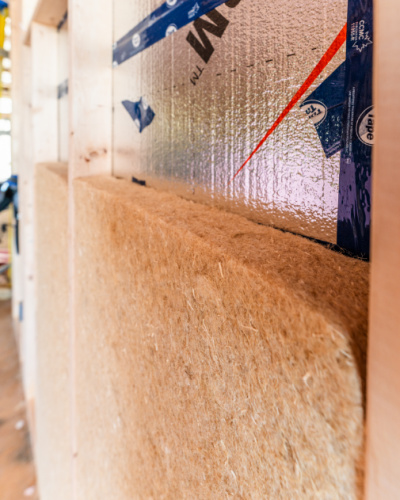
Hemp is from the same species as cannabis, but the hemp used in insulation has nothing to do with marijuana.
The industrial hemp grown for its fibre comes to maturity quickly -- in three to four months.
As it grows, it sucks carbon out of the air and sequesters it when it's cut and made into insulation.
In fact, hemp insulation naturally absorbs and stores CO2, holding 1.5 to 2 times its weight in carbon.
Over the lifespan of the Wilden home, the hemp insulation is estimated to remove 1,409 kilograms of CO2, the equivalent of keeping 1,600 pounds of coal from burning.
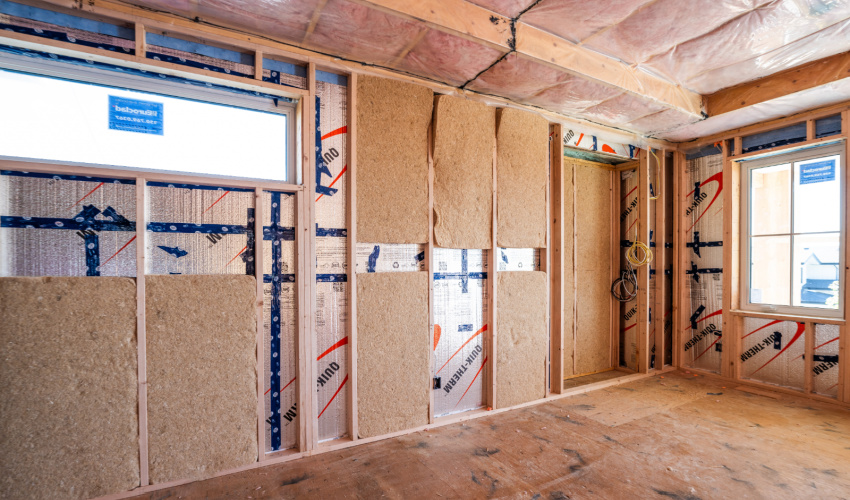
The insulation is compressed hemp formed into hemp wool insulation batts.
For the Wilden house, two layers of such insulation, one 3.5 inches, another 5.5 inches for 9 inches total, are packed between the exterior wall of Hardie Board, stone and stucco and the interior drywall.
As such, you'll now never see what's between the walls and the hemp-insulated house looks like any other inside and out.
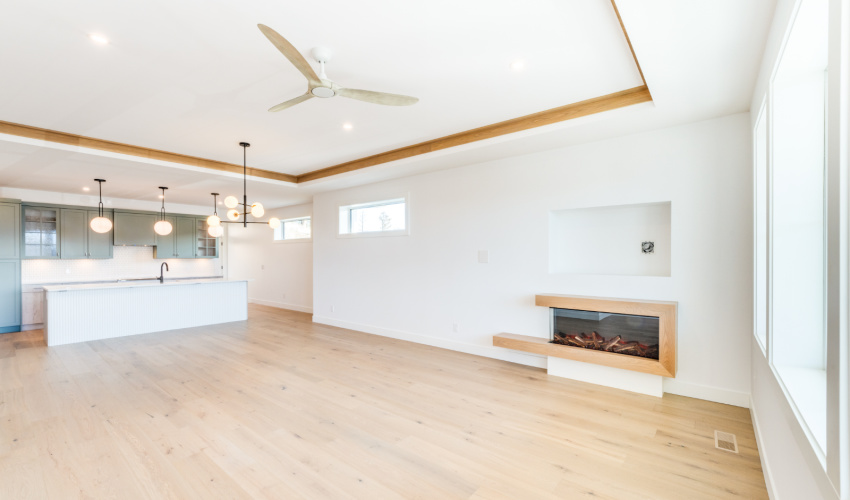
Hemps superior insulation properties keeps homes warmer in winter and cooler in summer, reducing heating and air conditioning use and cost.
Hemp is non-allergenic, low in volatile organic compounds and free of synthetic toxins for an all-round healthier environment.
Hemp also naturally regulates humidity, helps prevent mold growth and improves home longevity.
It's also an amazing soundproofer.
Soundproofing is important in townhouses and condominiums where people share walls.
That's why Wilden is planning on incorporating hemp insulation into future multi-family projects going forward.
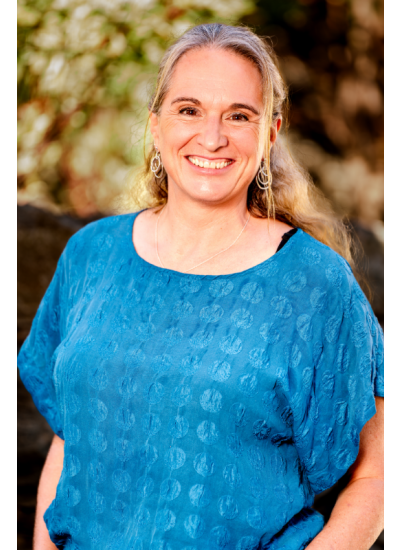
"Like all early innovations, hemp is more expensive right now than traditional insulation," pointed out Eger-Blenk.
"But, the price will come down as there's more demand. Our goal is to make home construction better and have the lowest possible emissions at the lowest cost."
Right now, hemp insulation is $3 more expensive per square foot than typical fibreglass batt insulation.
For the test house, the hemp insulation was roughly a $10,000 extra cost.
Wilden will also share all its hemp insulation findings, knowledge and expertise on its website so homebuyers can consider it when they have a home built for them at Wilden.
The hemp insulation Wilden used came from Kelowna-based HempWorks Canada, which carried insulation batts manufactured in Quebec.
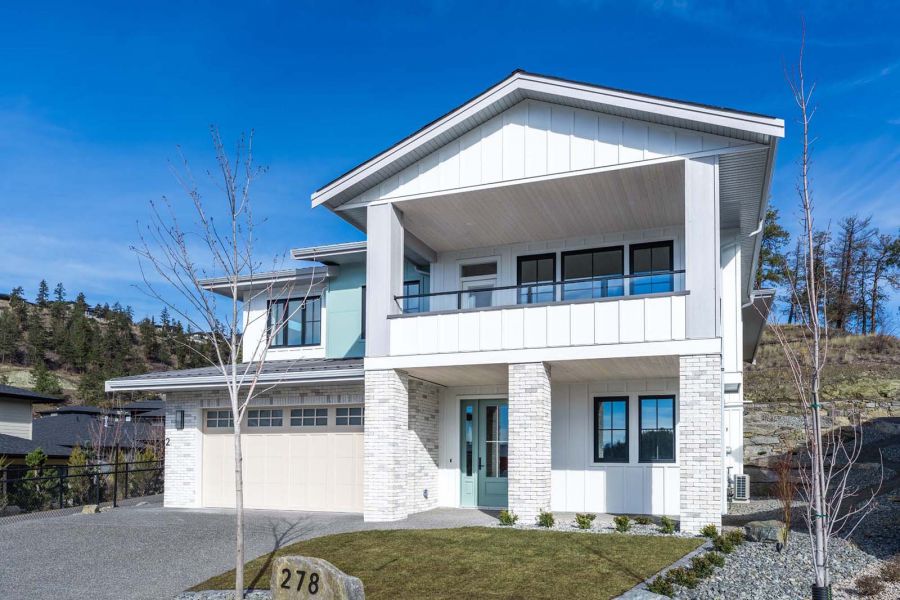
The house at 278 Summer Wood Dr. is actually two homes -- a main, 2,430-square-foot, five-bedroom, three-and-a-half bedroom family residence with a 847-square-foot legal, one-bedroom suite.
This home is move-in ready and is for sale for $1,749,990.
To explore the home visit the open house Saturday, March 29 from noon to 5 pm at 278 Summer Wood Dr. or book a private viewing here.














